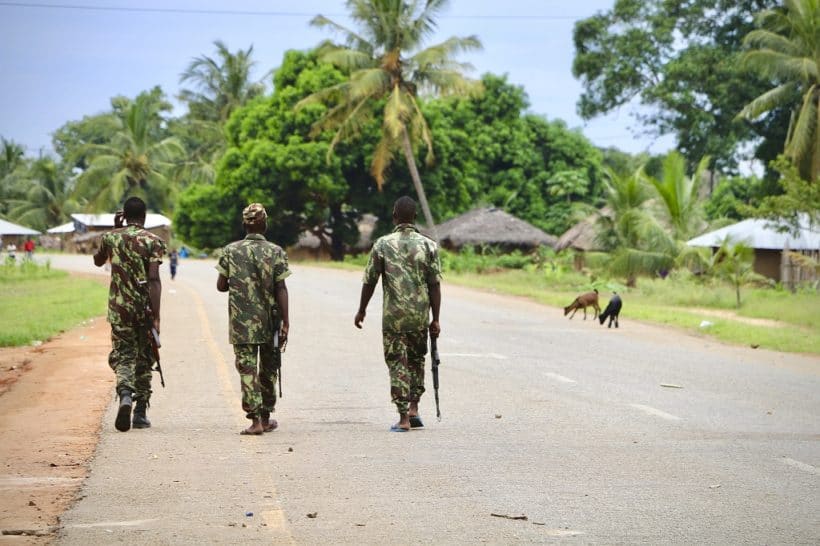
MAPUTO, April 5 (Reuters) – The town in northern Mozambique that Islamic State-linked insurgents attacked late last month is now secure after the military killed a significant number of militants and cleared one final area, an army spokesman and a provincial official said.
“We have completed the clearing (of the town). It was the only sensitive area that we needed to clear. … It is completely safe,” army spokesman Chongo Vidigal said in comments broadcast by state TV channel TVM late on Sunday.
Armindo Ngunga, secretary of state for the Cabo Delgado province, told Reuters on Monday that the town of Palma was “under the control of the state”.
“There was significant loss of human life, infrastructure destroyed. But people are safe now,” Ngunga added.
Insurgents on March 24 attacked the coastal town of Palma, near natural gas projects worth $60 billion that are meant to transform Mozambique’s economy. Mozambique’s government says dozens died in the assault, and security sources say clashes continued outside the town as recently as Friday.
Reuters has not been able to verify the accounts from Palma independently. Most means of communication with the town were cut off after the attack began.
Footage taken by TVM in Palma showed a soldier covering a body lying in the street and burned buildings.
Vidigal said the facilities of French energy company Total near Palma were being protected, after sources told Reuters on Friday that Total had withdrawn all its staff as the militants appeared to be approaching.
A Total spokesman and Mozambique’s defence ministry did not immediately respond to requests for comment on Monday.
Islamic State-linked insurgents have been increasingly active in Cabo Delgado since 2017, although it is unclear whether they have a unified aim.
Aid groups believe the latest attack displaced tens of thousands of people, many of whom fled into dense forest or escaped by boat. But the extent of the death and displacement is not yet clear, and many remain unaccounted for.
Survivors have recounted seeing bodies of others who died of hunger or dehydration while trying to escape.
Thousands have poured into Cabo Delgado’s capital Pemba, stretching a city already brimming with people displaced by previous rounds of Islamist violence as well as a deadly cyclone in 2019.
(Reporting by Manuel Mucari; Additional reporting by Catarina Demony in Lisbon and Emma Rumney in Johannesburg; Writing by Alexander Winning; Editing by Hugh Lawson)

